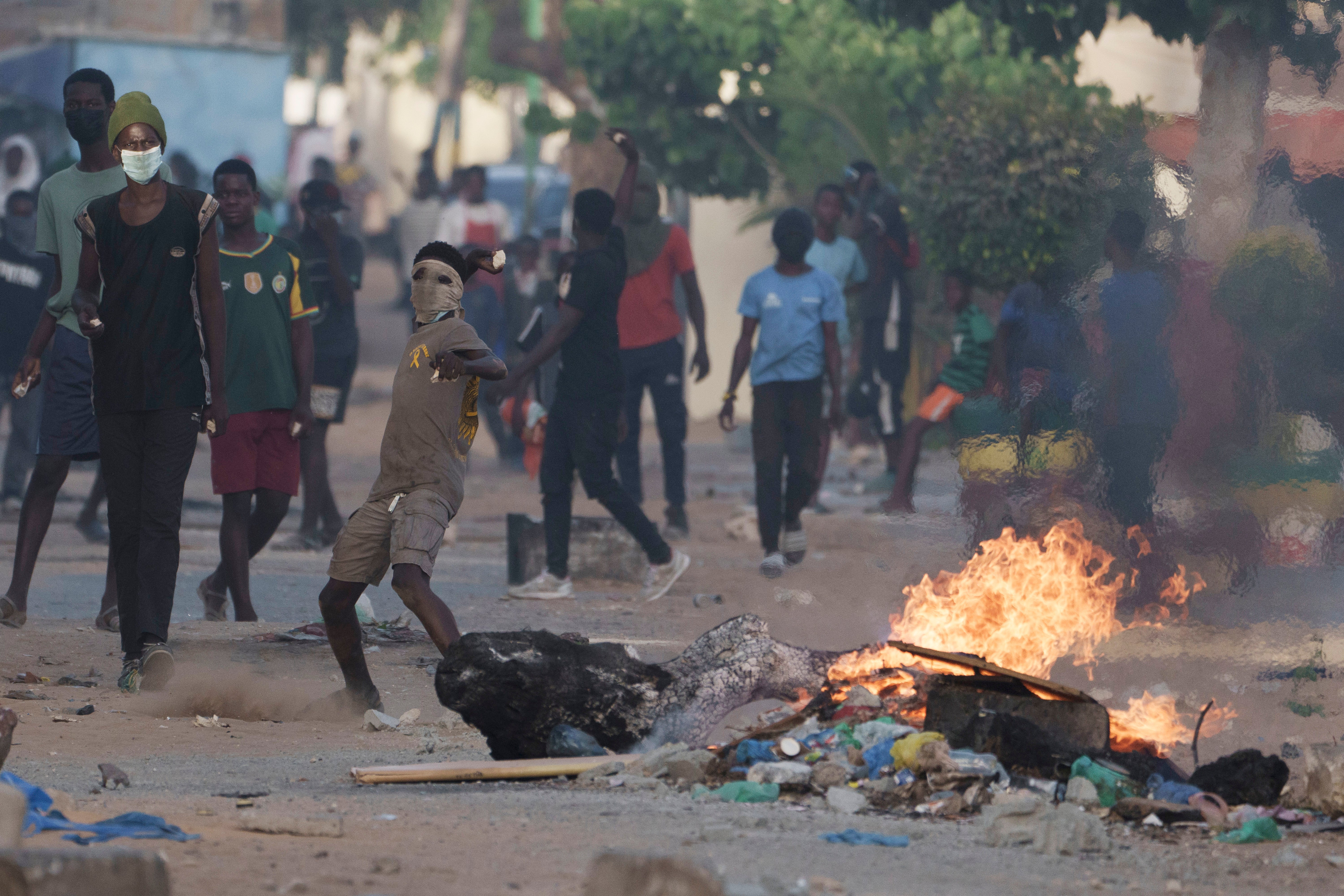Senegal violence threatens country's stability as experts call on government to instill calm
Senegal experts have called on the government to instill calm after days of the country’s deadliest violence in years and concerns it could have lasting consequences

Your support helps us to tell the story
From reproductive rights to climate change to Big Tech, The Independent is on the ground when the story is developing. Whether it's investigating the financials of Elon Musk's pro-Trump PAC or producing our latest documentary, 'The A Word', which shines a light on the American women fighting for reproductive rights, we know how important it is to parse out the facts from the messaging.
At such a critical moment in US history, we need reporters on the ground. Your donation allows us to keep sending journalists to speak to both sides of the story.
The Independent is trusted by Americans across the entire political spectrum. And unlike many other quality news outlets, we choose not to lock Americans out of our reporting and analysis with paywalls. We believe quality journalism should be available to everyone, paid for by those who can afford it.
Your support makes all the difference.Senegal experts called on the government on Monday to instill calm after days of the deadliest violence in years and concerns it could have lasting consequences.
Days of clashes between security forces and supporters of opposition leader Ousmane Sonko have killed at least 16 people and injured hundreds of others. Police have arrested 500 people, some of whom used Molotov cocktails and weapons.
“(There’s) the threat of chaos. The threat of civil war,” Alioune Tine, founder of Afrikajom Center, a West African think tank, told The Associated Press in an interview Monday in the capital, Dakar. “We have never ever lived this situation in Senegal ... We cannot go fighting among ourselves and we have to stop now, to make peace now, to be united now."
The clashes first broke out last Thursday, after Sonko was convicted of corrupting youth but acquitted on charges of raping a woman who worked at a massage parlor and making death threats against her. Sonko, who didn’t attend his trial in Dakar, was sentenced to two years in prison.
Sonko came third in Senegal’s 2019 presidential election and is popular with the country’s youth. His supporters maintain his legal troubles are part of a government effort to derail his candidacy in the 2024 presidential election. Under Senegalese law, Sonko’s conviction could bar him from running.
While Senegal, a country of around 17 million people, has experienced upheaval before, rights groups and analysts say the current clashes are the worst political crisis the nation has seen since 1988, when a general strike and electoral protest shook the power of the then president, Amnesty International researcher Ousmane Diallo said.
At the heart of the unrest are fears that President Macky Sall will run for a third term. The constitution limits presidents to two five-year terms. But Sall argues that a constitutional reform adopted in 2016 allows him to reset the clock and seek another term.
“My massive worry is that we are only on the premises of the violence cycle in Senegal as the (possible) announcement of a third mandate run by Macky Sall could trigger a massive popular uprising and violence Senegal has never seen so far,” said Guillaume Soto-Mayor, researcher at the Middle East Institute.
Some extremely young people are dying daily, and Senegal and its democratic system are possibly on the brink of collapse, he said.
Others Senegalese experts warn that if the violence continues it might not only destabilize the country but could be an opening for jihadi violence, which has already wracked much of the region, including in neighboring Mali and Burkina Faso.
While a cautious calm returned to Dakar on Monday, with traffic resuming and some people going back to work after days of shuttering inside, many are bracing for what lies ahead.
Sonko’s house is under tight security, and he hasn't been seen or heard from since the verdict and it’s unclear when or if he’ll be detained and taken to prison. Sall also hasn't addressed the nation.
Violence erupted in March 2021, killing at least 14 people during clashes when authorities arrested Sonko for disturbing public order on the way to his court hearing. Religious leaders, who hold significant influence in the country, were key in bringing both sides to the table to quell the violence, analysts say.
Since last week's clashes erupted, some religious leaders have appealed for calm. Over the weekend, Serigne Mountakha Mbacke, caliph of the Mouride brotherhood, Senegal’s most influential religious order, called on people in the city of Touba, the brotherhood's headquarters, to stop demonstrating and return home.
Religious leaders are mediating with the parties behind the scenes and believe that a minimum consensus might be reached, Cheikh Ahmed Tidiane Sy, president of the Unitary Framework of Islam of Senegal, a Muslim religious group, told the AP on Monday. However, obstacles, such as Sonko's arrest remain, which could “still set our country ablaze,” he said.
While many Senegalese want the upheaval to end, others say they'll continue protesting until there's justice.
“The government wants to prevent our leader from being a candidate. We do not accept,” said Malang Coly, a Sonko supporter. “We will fight even if the government has arrested many of our comrades. We will continue to denounce. If the opportunity arises, we will demonstrate."